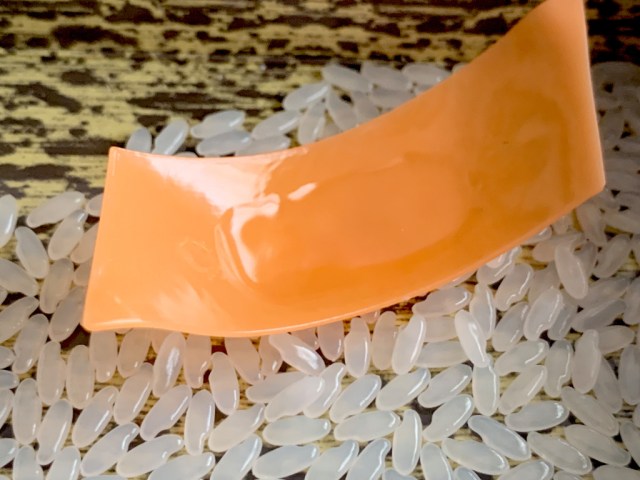
Every single grain of rice is its own individual piece.
A piece of sushi is pretty simple, as far as the ingredients go. It’s pretty much just rice and a slice of fish, or whatever other topping you’re putting on it.
So when our Japanese-language reporter Ayaka Idate found herself wanting to put together a plastic model for the first time in her life, she figured model maker Syuto’s sushi models would be an easy project for a beginner, and picked up a salmon kit and a tuna one too.
▼ They even come in packages that look like the old-school takeout boxes used by sushi restaurants in Japan.
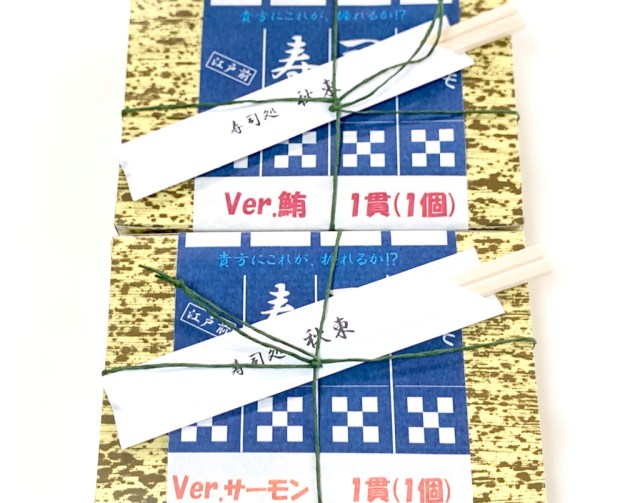
Just like Ayaka had assumed, the assembly instructions are incredibly simple. They’re so simple, in fact, that Syuto doesn’t even include an instruction booklet or sheet, and just prints the three steps on the back of the box.
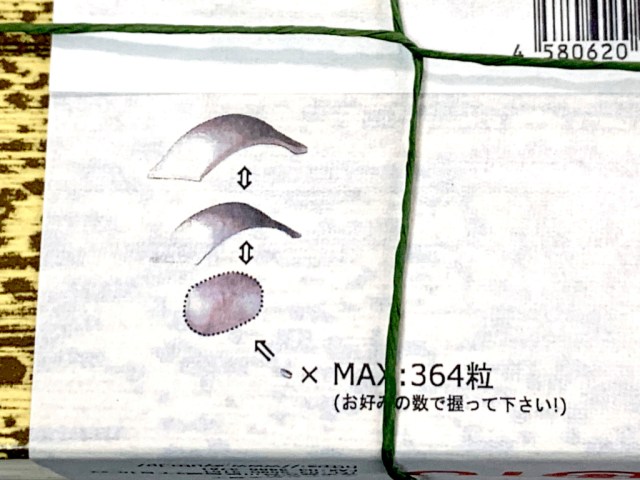
“I’ll be finished in no time,” thought Ayaka as she opened the box. With the lid removed, she could see that each kit came with two pieces for the fish…
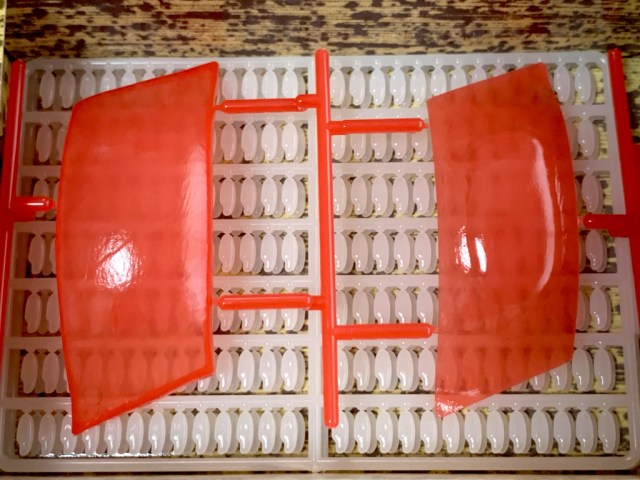
…and under them…
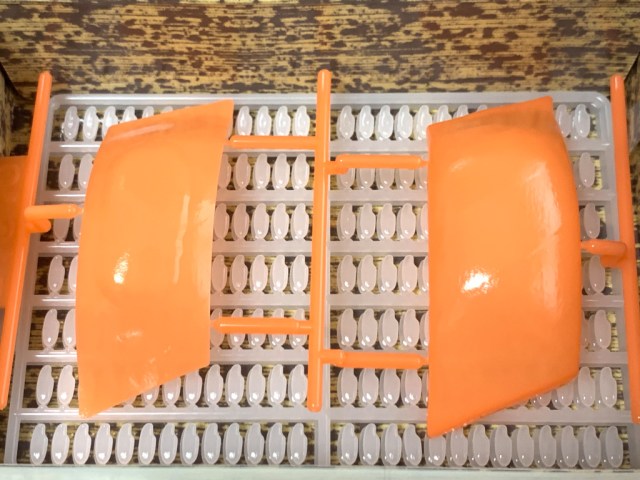
…364 pieces of rice!

Yes, as we talked about back in the spring, each sushi model kit comes with 364 individual grains of plastic rice for you to form yourself as the base for your nigiri-style piece.
As with many model kids, the pieces come attached to a frame, and Ayaka started by using a pair of pliers to clip out the fish.
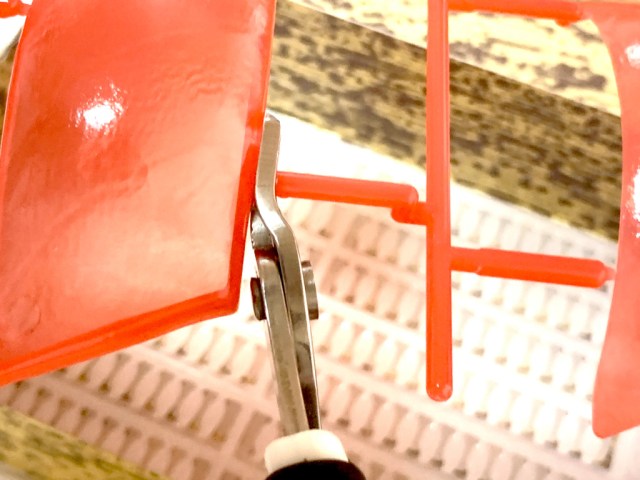

Then it was on to the rice, but she quickly ran into a problem: her pliers were too thick to cut the pieces out.
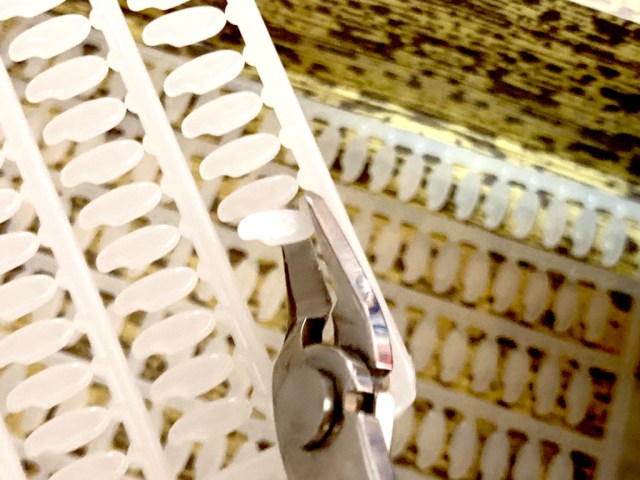
Even using a needle nose pair didn’t work, so in the end she popped them off by hand, one-by-one.
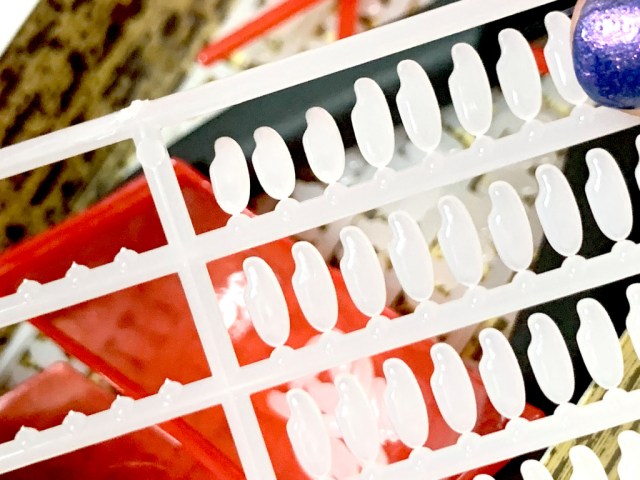
Unfortunately, this left some pieces with a bit of leftover plastic where they’d been attached to the frame, so Ayaka spent the next two hours trimming those unwanted bits off with her needle nose pliers.
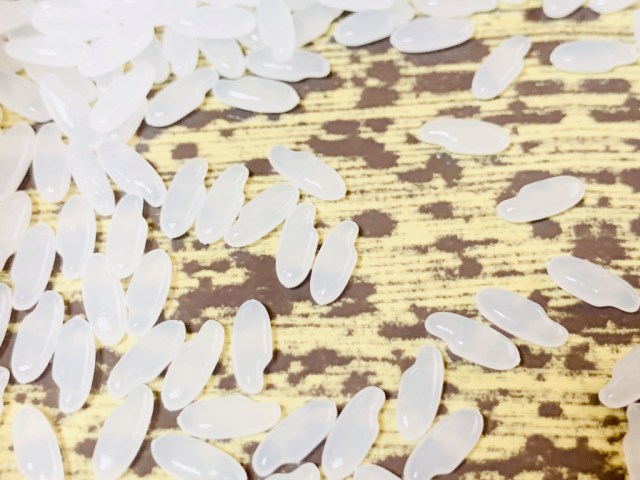
At times during the ordeal, she began to doubt her sanity. “Am I being punished?” she thought, but she persevered, and when she was done, she had a pile of 728 pieces of rice.
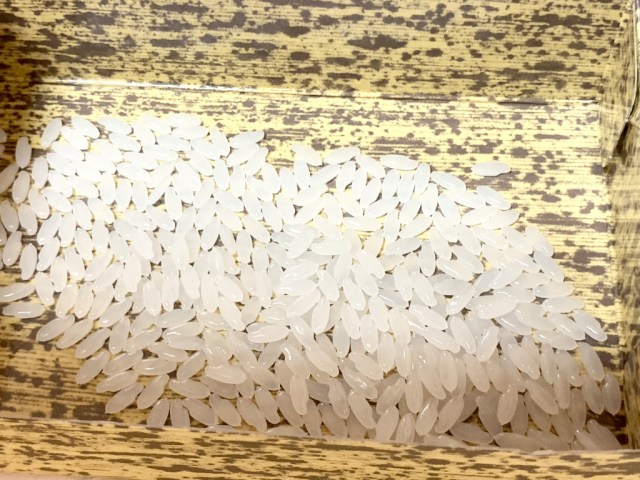
Since the rice is going to form the base of the model, obviously you can’t leave them loose, and instead have to apply adhesive to them. At this point, though, Ayaka was exhausted, so she decided to take a break…for three months. She might never have got back to her model building project if she hadn’t gone to eat some actual sushi…
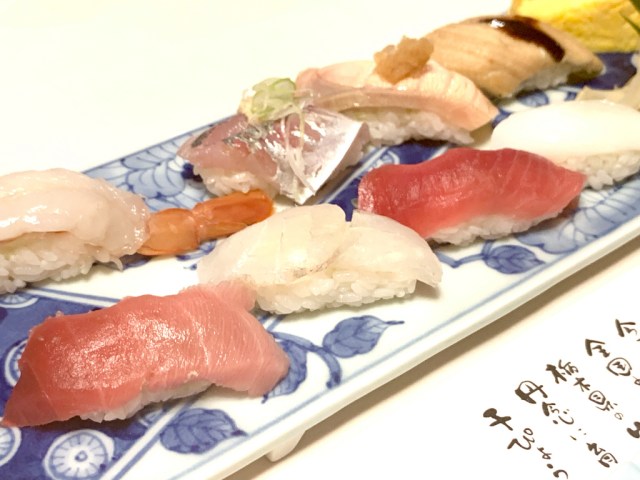
…and flipped over her tuna piece to admire all the rice underneath.
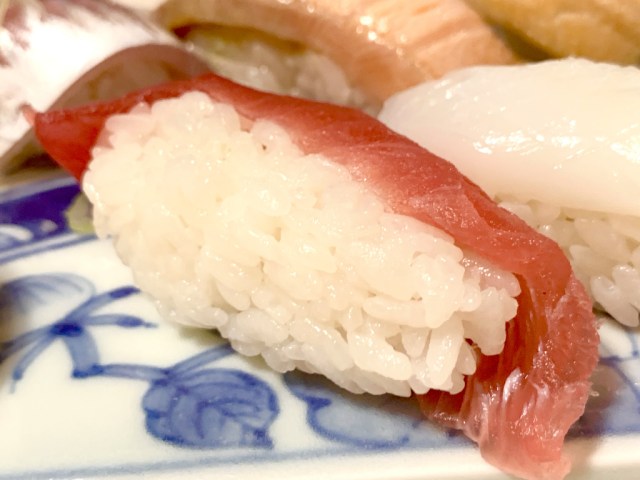
Newly determined to make her model look just as good as the real thing, Saya went back to work and started applying adhesive.
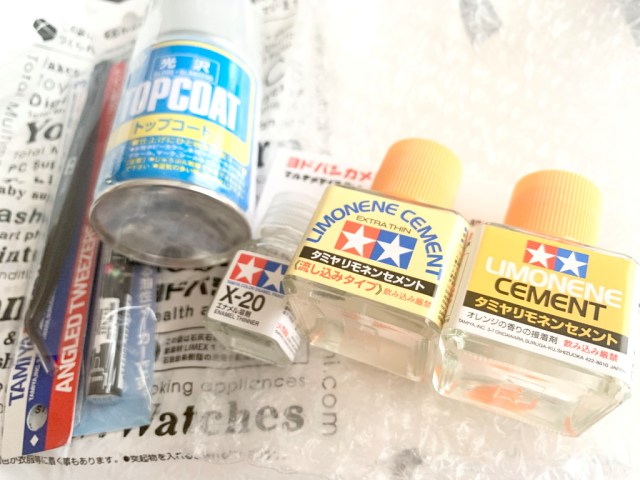
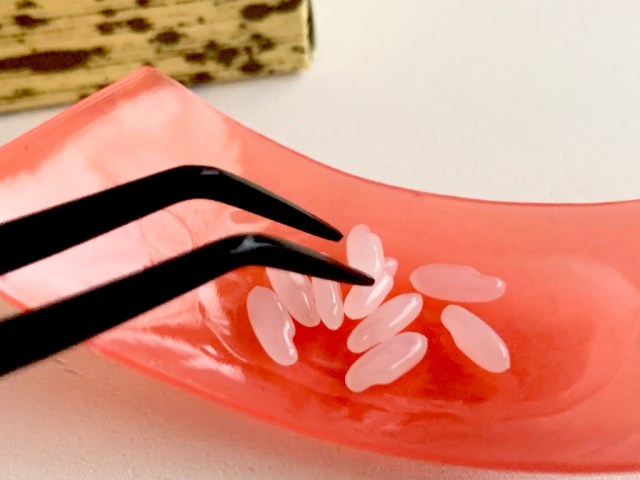
Using tweezers, she carefully applied adhesive to a grain, then placed it carefully on the underside of the curved fish piece.
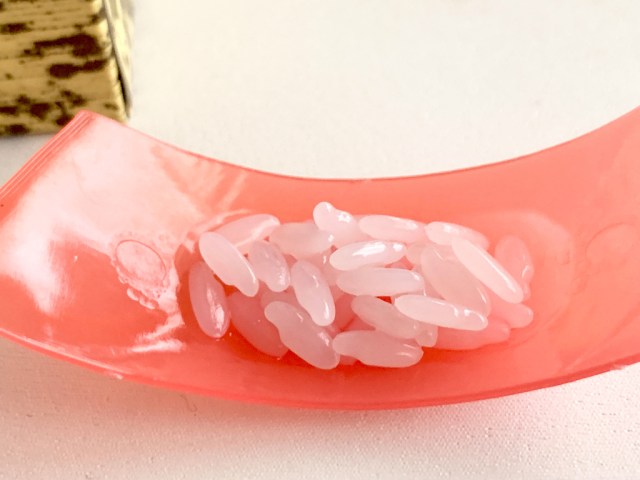
There’s a certain tranquility to the delicate repeated motion, but if you’re in a rush, once you’ve got a layer or two of rice in place you can lay down some adhesive on top of it and pour on more than one one grain at a time.
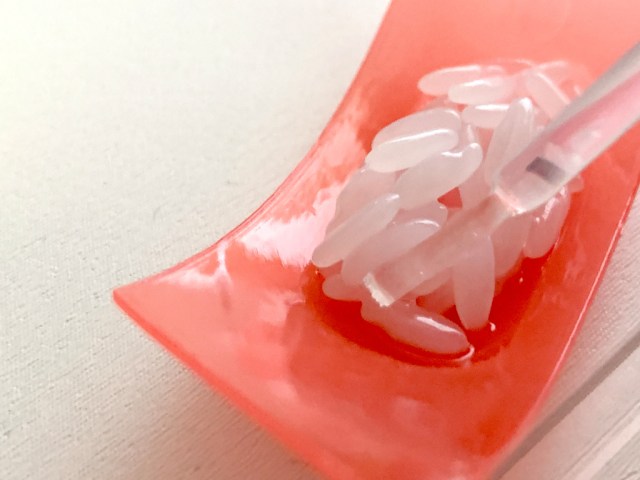
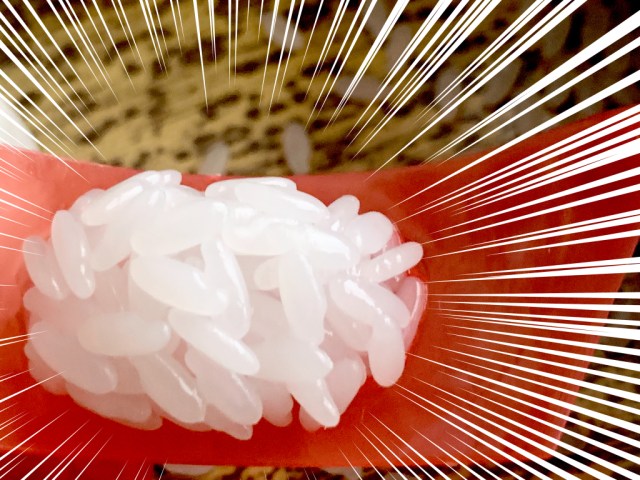
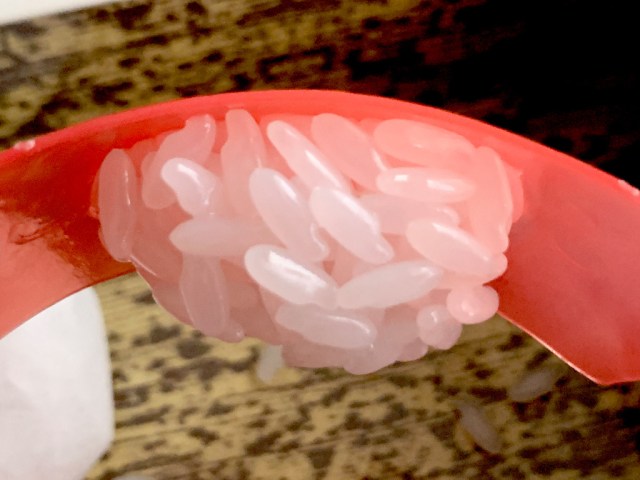
This does run the risk of giving you an inelegant, uneven block of rice, though, so you don’t want to go too fast. You’ll also want to add in a little more rice in specific spots if the pile starts to clump and leave empty pockets elsewhere.
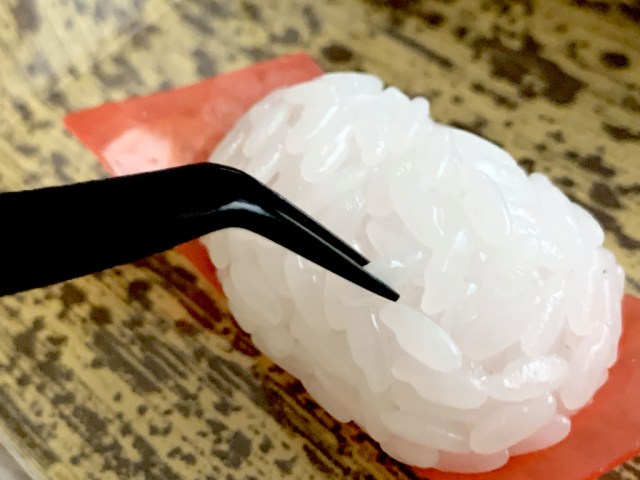
In total, forming the rice for the tuna took about 90 minutes, but when it was done, it looked great!
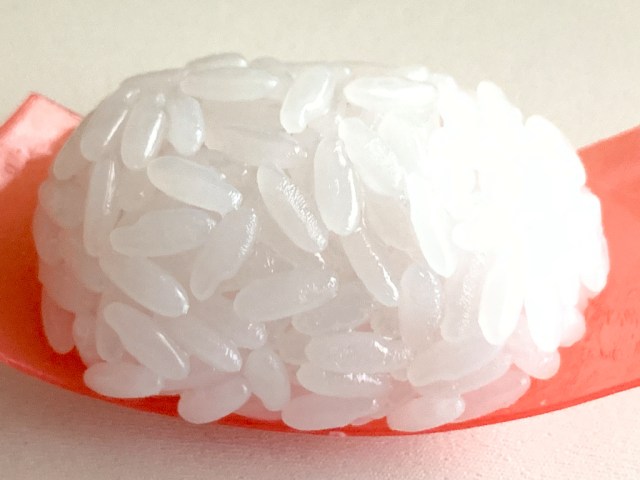
With the benefit of experience, Ayaka made quicker progress with the salmon, forming its rice in less than an hour.
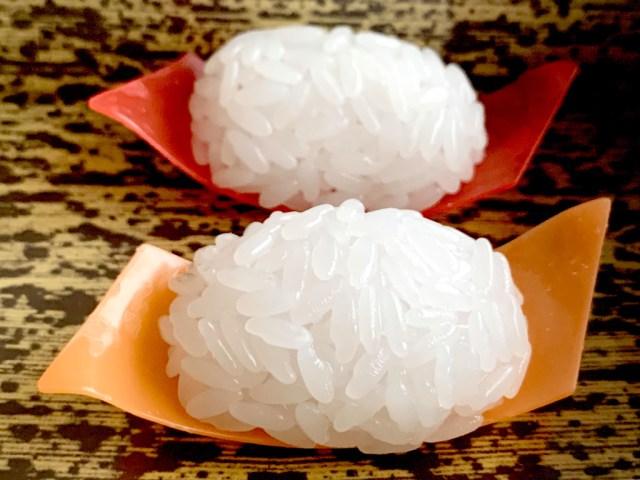
For an additional artistic flourish and extra realism, Ayaka took out a white marker to draw in lines to replicate the marbling on a slice of fish.
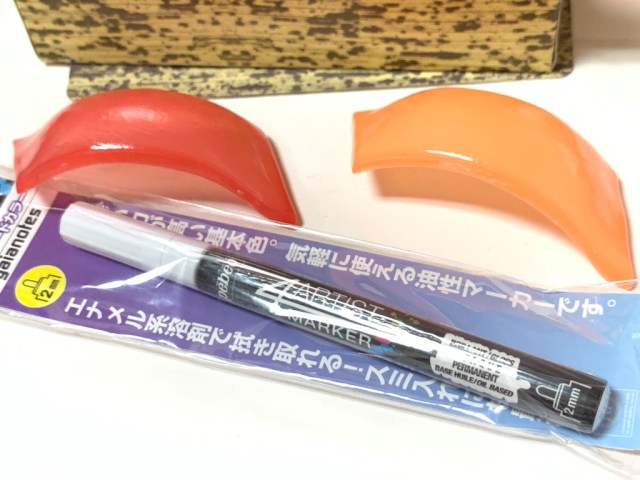
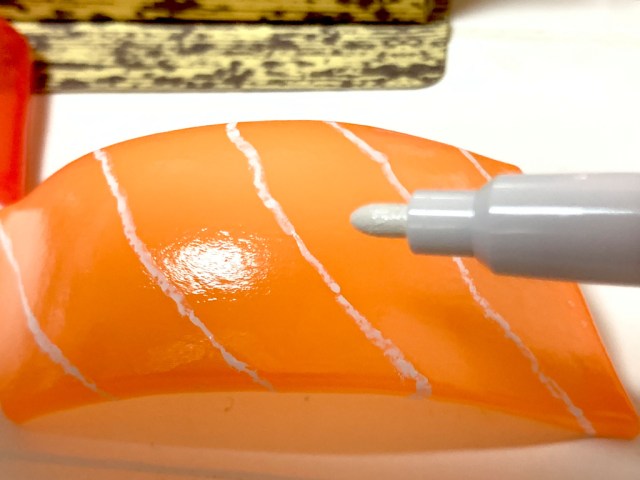
This turned out to be trickier than she’d expected, though, since the lines she drew seemed to be starkly defined and artificial. This turned out to be not a mistake, though, but a necessary part of the process. By applying some enamel paint thinner and then making corrections, the lines took on a less distinct and more organic appearance.
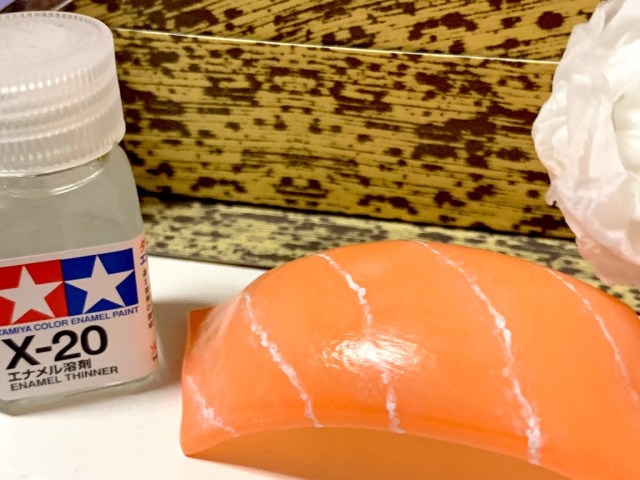
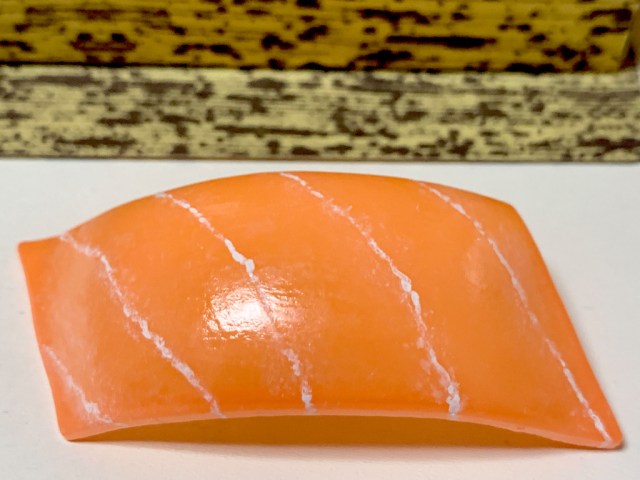
Satisfied with how the pieces looked, Ayaka applied a clear topcoat, which also gave them a glossy luster like freshly sliced sashimi.
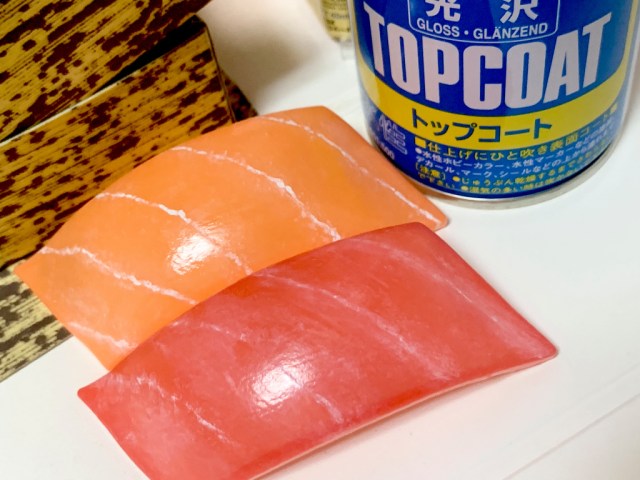
Then it was on to the final step of using adhesive to stack the two fish slices…
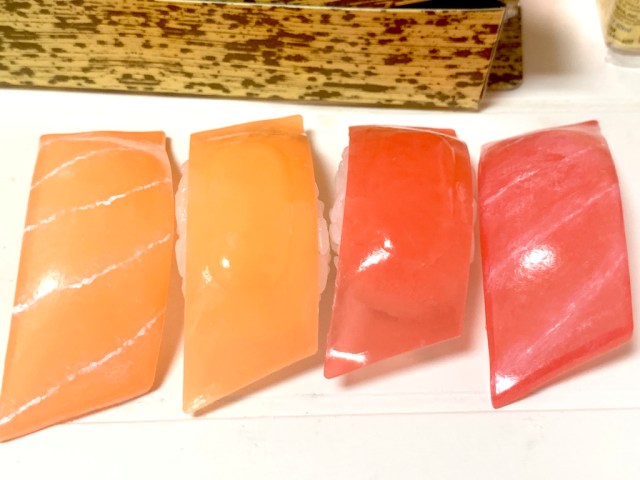
…and the sushi models were done!
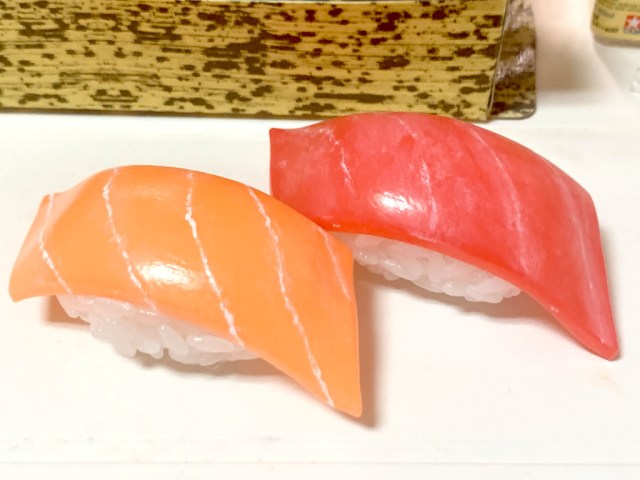
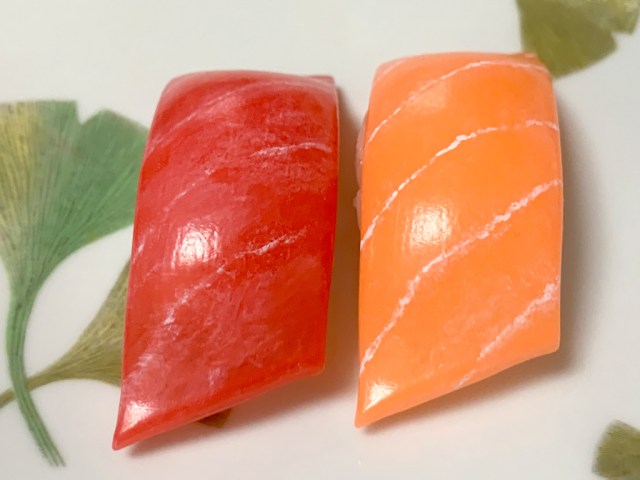
While she was snapping photos, Ayaka decided to do a side-by-side comparison with some real sushi too.
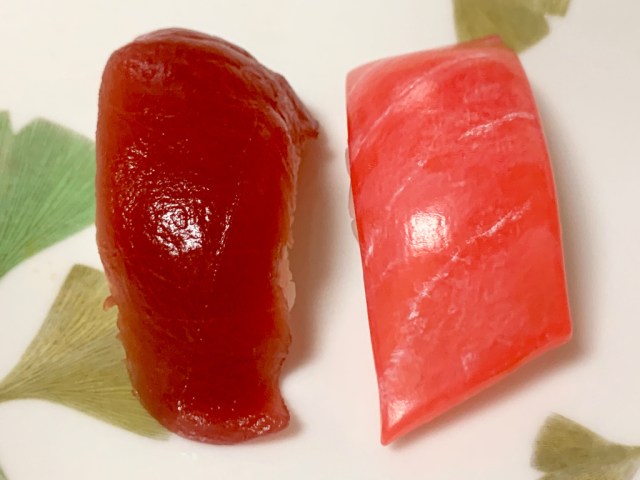
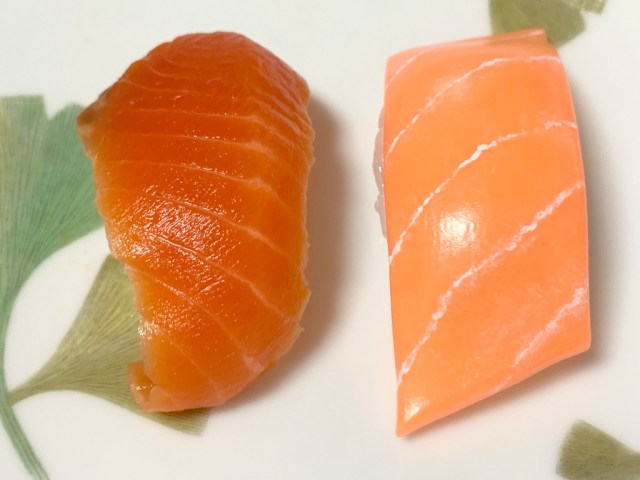
In the end, Ayaka’s not sure if she’d recommend Syuto’s sushi models for an absolute beginner like herself. Yes, the basic assembly is pretty simple, but 364 pieces of rice are a lot to deal with.
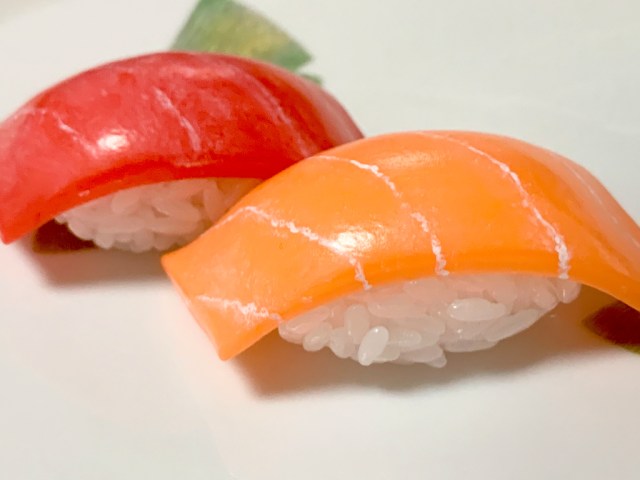
On the other hand, though, there was an undeniable thrill as she put the last grain in place, and she now has two delicious-looking pieces of sushi that she can admire anytime she wants, which is a special and unique luxury considering how quickly we usually gobble up any sushi we have in front of us.
Photos ©SoraNews24
● Want to hear about SoraNews24’s latest articles as soon as they’re published? Follow us on Facebook and Twitter!

No hay comentarios:
Publicar un comentario